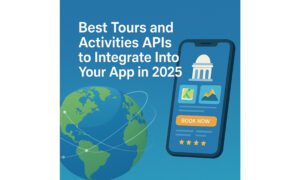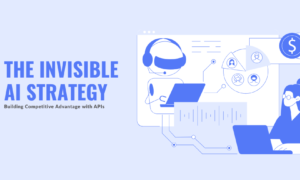Artificial intelligence (AI) is revolutionizing industries by offering solutions to long-standing challenges. One of the key tools emerging in this transformation is AI Application Programming Interfaces (APIs), which allow companies to incorporate AI algorithms into their existing operations effortlessly. These interfaces provide adaptability and effectiveness, along with the ability to scale easily—a necessity in today’s fast-evolving world. This article explores the applications of AI APIs across various sectors.
Enhancing Customer Experience
Customer service heavily relies on an AI API to enhance user engagement through chatbots using natural language processing to respond to customer inquiries. These tools also improve satisfaction levels by analyzing consumer emotions with AI sentiment analysis and streamline operations by automating routine tasks to allow customer service teams to focus on more complex issues efficiently.
Revolutionizing Healthcare
The healthcare industry is undergoing significant changes with the help of AI APIs that are revolutionizing how diseases are diagnosed. AI-driven image analysis and patient data evaluation enable high accuracy in identifying health issues and facilitating timely interventions. Additionally, virtual health assistants powered by AI help patients navigate treatment strategies, improving accessibility and personalizing healthcare services.
Optimizing Supply Chain Management
AI APIs significantly enhance supply chain operations by forecasting demand trends, helping organizations manage stock levels more efficiently and reduce waste. They also ensure that deliveries are optimized, minimizing transport expenses through route planning and automated logistics solutions. Furthermore, AI-driven data analysis provides valuable insights into supplier performance, helping businesses make more informed decisions.
Transforming Financial Services
AI applications are transforming the financial services sector by providing enhanced security and efficiency. Machine learning algorithms are used to detect fraudulent activities quickly, keeping assets secure in real-time. AI-driven risk management strategies assist clients in making better financial decisions based on individual spending behaviors and financial goals. Automated trading platforms use AI to execute transactions at optimal moments, significantly increasing returns.
Advancing Manufacturing Processes
The manufacturing industry is being transformed through the implementation of AI APIs. Predictive maintenance tools, powered by AI, anticipate machinery breakdowns, reducing downtime and lowering maintenance costs. AI-driven quality assurance systems can detect defects in products, ensuring high-quality standards. Additionally, AI-powered robots are enhancing production efficiency by automating routine tasks, enabling human workers to focus on more complex operations.
Elevating Marketing Strategies
Marketing strategies are evolving with the help of AI APIs, which analyze consumer behavior and interactions with products or services. This allows companies to create marketing campaigns that better connect with their target audience. Predictive analytics software powered by AI helps businesses forecast market trends and adjust their strategies accordingly. Furthermore, AI-based content creation tools produce high-quality material quickly, saving both time and resources.
Streamlining Human Resources
AI APIs are bringing significant improvements to HR functions. The hiring process benefits from AI algorithms that efficiently screen resumes and identify the best candidates. AI-powered employee engagement platforms offer personalized feedback and growth strategies, enhancing job satisfaction. Additionally, AI tools help HR teams plan staffing needs by analyzing company requirements and predicting future demands.
Supporting Education Initiatives
The education sector is transforming through personalized learning facilitated by AI APIs. Adaptive learning systems assess each student’s strengths and weaknesses, adjusting materials accordingly. AI-powered virtual mentors provide additional support to enhance the learning journey. Additionally, AI-driven analytics help educators track student progress and implement interventions to improve outcomes.
Boosting Retail Operations
In the retail sector, AI technology helps streamline operations by offering insights into customer preferences and behaviors. AI-powered recommendation systems suggest personalized products, enriching the shopping experience for consumers. Inventory management tools leverage AI to forecast demand and optimize stock levels, reducing excess inventory. AI-driven chatbots provide real-time support, boosting customer satisfaction and fostering brand loyalty.
Conclusion
AI Application Programming Interfaces (APIs) are transforming various sectors by providing customized solutions to meet specific needs. They help improve customer interactions, optimize operations, and streamline inventory control. As businesses increasingly adopt AI APIs, they can maintain a competitive edge in the digital landscape, securing long-term growth and development.



































